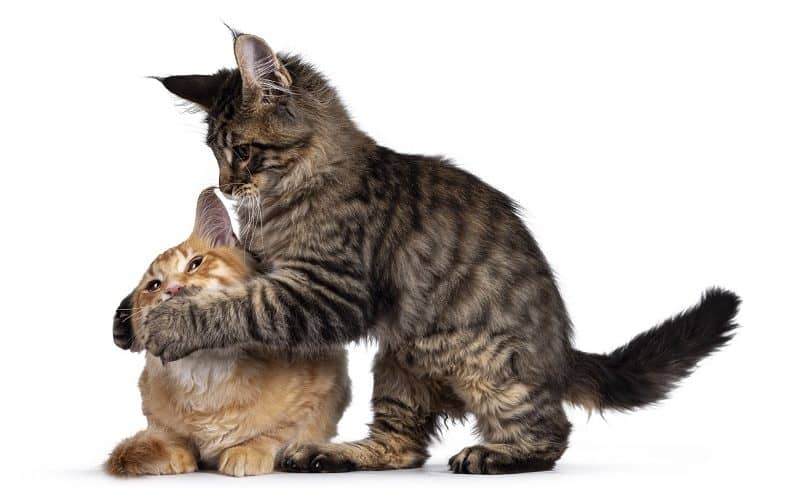Older Cat Attacking New Kitten
Older Cat Attacking New Kitten
Is It Normal For Older Cat To Hiss At New Kitten?
Yes, cats are perfectly natural to hiss at the new kitten you just brought home. They engage in this activity in order to scare away the new cat. Introducing a new kitten to your existing cat is a difficult undertaking. Your elder cat will be territorial and not want to be the center of attention, which will cause him to hiss and snarl at the new kitten. While the unknown period lasts, the only thing you can do is make the adult cat aware of the kitten without pushing it on each other.
When Will My Cat Stop Hissing At My New Kitten?
Once your cat realizes that there is no danger in befriending the new kitten, it will cease hissing at it.
Gender
Neutered male cats are considerably more receptive to other cats than other cats, according to studies.
Age Gap
The duration of hissing is also determined by the age difference between your cats. Older cats are usually less inclined to tolerate younger cats with high energy levels. They see them as significant challenges to their established persona in front of their owners, making them less tolerant of the new kitten.
They Consider Them As A potential Threat
We talk about how cats are territorial and dread having their borders violated every now and then. In this situation, the hissing may continue until the cat is certain there is no danger.
What Do I Do If My Cat Doesn’t Like My New Kitten?
Your cat doesn’t appear to enjoy your new kitten, which is understandable given that most cats you’ve had for a long time are wary of new changes and refuse to accept most of them.
The Friendship Will Be Determined By Time
Your cat never requested a friend. You’ve provided it with one. However, you can’t make your cat like your new kitten. For it, they must have mutual understanding. As time passes, they will notice that having each other complement them more, which will add to their friendship.
Equal Time Devotion
When your cat is safe, secure, and adored. There are less odds of them being unlikable to each other; for your cats, you are their whole universe; being loved erases their anxieties, and they become tolerant of everything around them.
Don’t Threaten Them
Forcing them to interact with one other will only build a barrier between them. There’s a good likelihood they’ll become more aware of each other and dislike one other.
How Do I Bond My Cat With New Kitten?
You may help your cat connect with your new kitten by encouraging them to play together, praising them for good behavior, and sometimes playing with them to keep them acquainted.
How do I get my older cat to stop attacking the kitten?








